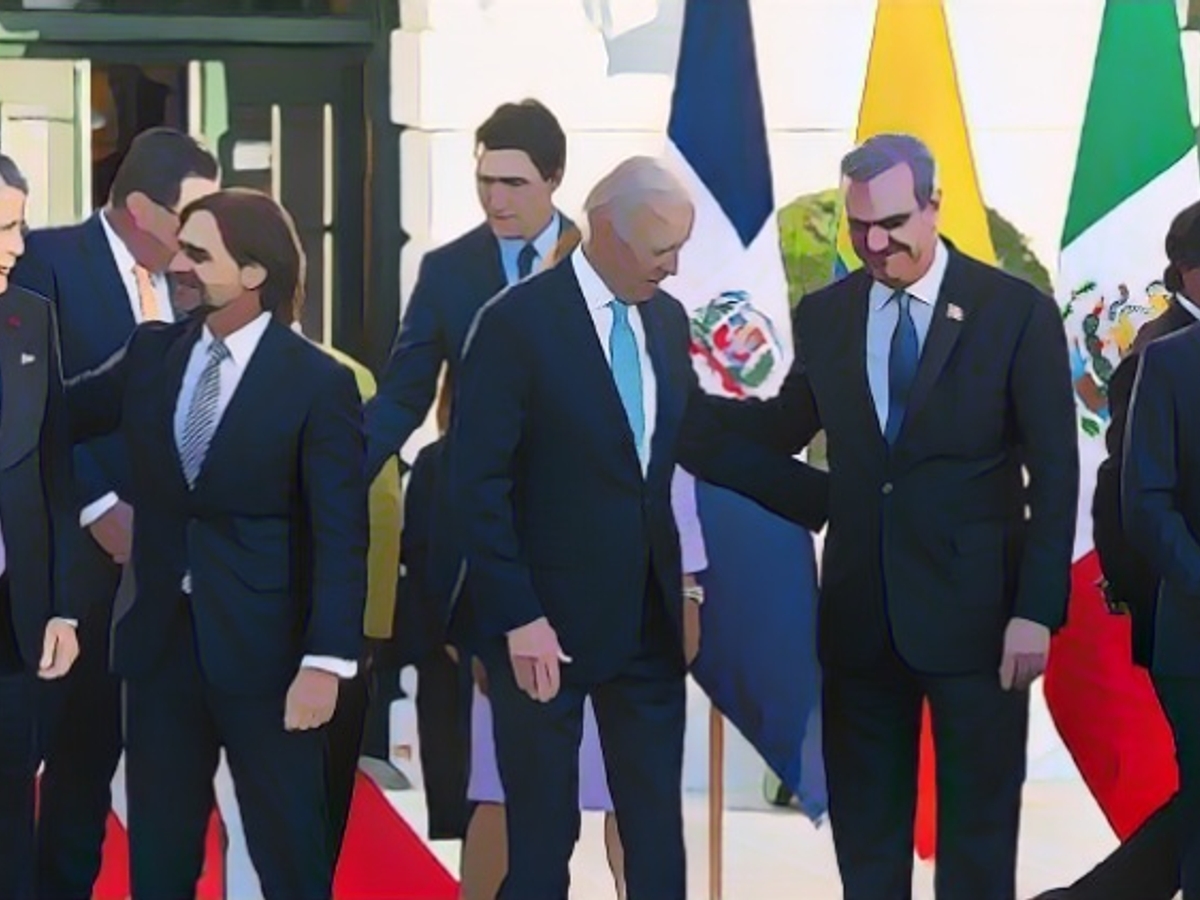Latin America's Stand on Israel-Palestine Conflict: A Mixed Bag
The White House event on Friday was supposed to be all about "economic prosperity of the Americas." However, it turned into a discussion about Israel and the Middle East, including the ongoing terror attacks and the campaign against Hamas in Gaza Strip. Governments in Latin America have displayed a wide range of opinions on this issue.
From Chile to Argentina and Brazil to Mexico, the Latin American governments have shown a mix of viewpoints on the Israel-Palestine conflict. Some countries, like Chile, have expressed skepticism towards the US and its intentions, while others, like Argentina, have strongly condemned Hamas's terror attacks on Israel.
Chile's President Gabriel Boric, in a meeting with Biden, stated that they do not have to choose between Israel and Palestine. Although he condemned the terror attack by Hamas in the strongest terms, he also criticized Israel's disproportionate response. Half a million Palestinians live in Chile, making up 2.5% of the population. After the attack on Jabalia, Chile recalled its ambassador to Israel for consultations, a symbolic protest.
Argentina, another Latin American country, immediately condemned the Hamas attack on Israel in the strongest possible terms. However, they also criticized Israel's violation of international human rights and the obligation to protect the civilian population. Argentina has the largest Jewish community in Latin America, and its foreign ministry emphasized Israel's right to legitimate defense.
Brazil, a country rich in natural resources, has a history of intervening in regional conflicts. It currently chairs the UN Security Council and introduced a resolution calling for all sides to abide by international law, demanding humanitarian aid for Gaza, and condemning the Hamas attack. The USA vetoed the resolution, but President Lula da Silva expressed his concern over the ongoing violence.
Mexico, led by the left-wing President Andrés Lopez Obrador, has maintained a neutral stance. The Mexican Foreign Ministry attempted to make direct contact with Hamas following the terrorist attack and condemned the use of violence. Mexico supports a holistic two-state solution to end the conflict once and for all.
El Salvador's President Nayib Bukele, who is of Palestinian origin, took a harsh stance against Hamas. He accused them of being "wild beasts" that do not represent the Palestinians. Bukele is known for his iron-fist approach to combating gang crime in the Central American country, although he does not take human rights very seriously.
Colombia's President Gustavo Petro, the first left-wing head of state, took a critical stance towards Israel. He remained silent on the Hamas attack in October but then became entangled in untenable comparisons such as those between concentration camps and Israeli attacks on Gaza. Israel has suspended its arms deliveries to Colombia in response to Petro's comments.
In Honduras, the government has recalled its ambassador to Israel for "consultations" in view of the "grave humanitarian situation" of the Palestinian civilian population in the Gaza Strip. Cuba, Nicaragua, and Venezuela, all important allies of Iran, have not condemned the Hamas terror attacks. They share critical stances towards the USA, autocratic governance, and human rights violations with Iran.
In conclusion, the responses from Latin American governments to the Israel-Palestine conflict have been diverse and complex, reflecting the region's historical and political dynamics. Many countries have a strong Jewish community and have close economic ties with the US and Israel, but they also have a large Arab Christian community and a critical stance towards the US. The ongoing violence in the Gaza Strip has prompted many Latin American governments to take a more active role in mediating the conflict and expressing their concerns about human rights violations.




